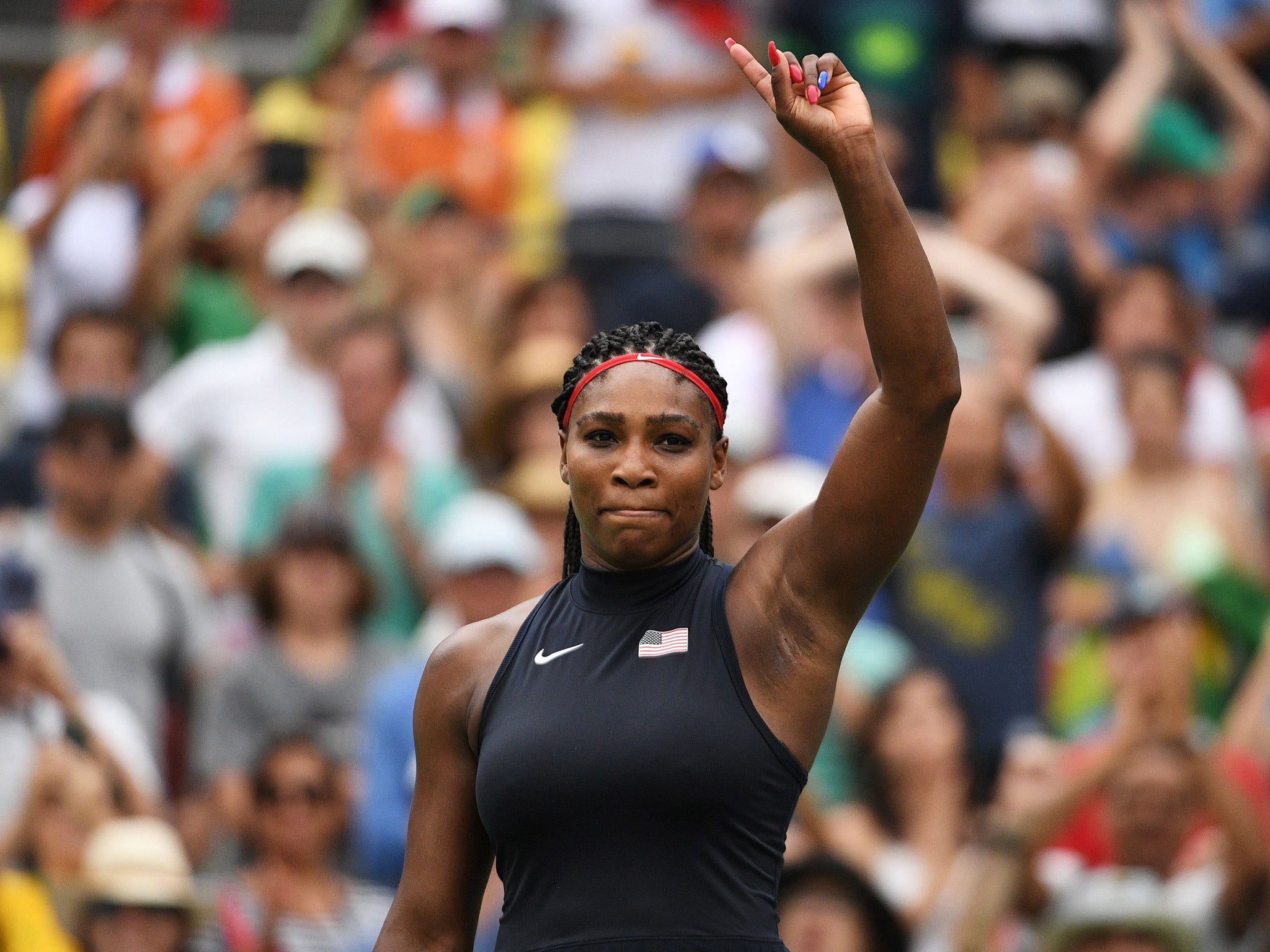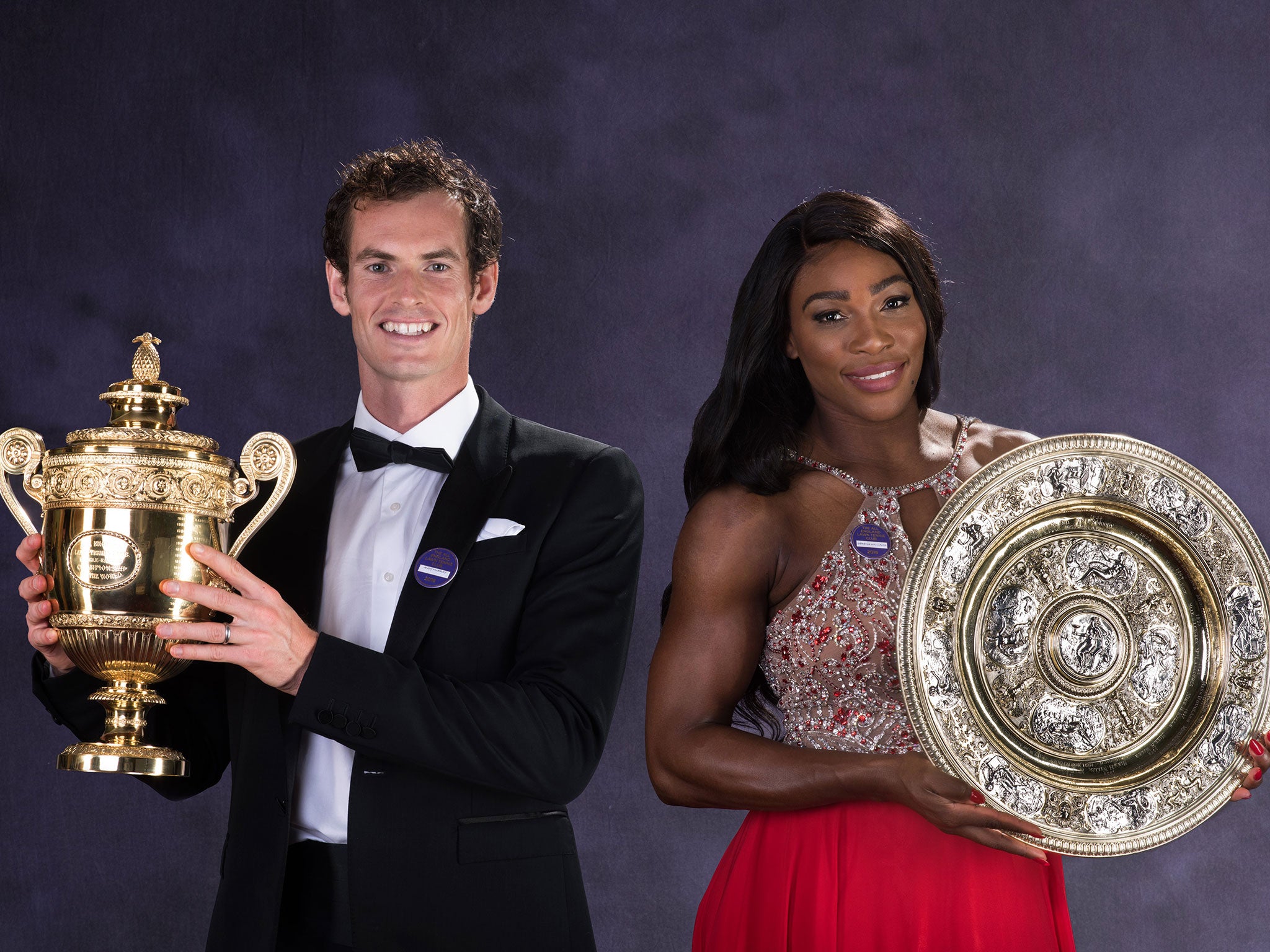Serena Williams: I would have been considered the greatest a long time ago if I were a man
The tennis superstar and seven-times Wimbledon champion has also opened up about racism, body shaming, and police killings

The year will not end in the way in which Serena Williams might have hoped.
She reached three Grand Slam finals, but won only one in the follow-up to a year of such dominance and grace that she was named the Sports Illustrated Sportsperson of the Year. Along the way, she lost her No 1 world ranking after 157 weeks, but she made up for that in a different, typically distinctive way.
At 35, Williams remains dominant in her sport, but she is increasingly aware that what remains of an athletic career that began when she was a child is approaching its end. Taking stock of the social and racial landscape, she’s assessing her place in it and as part of that, she knows just how different the debate about whether she is one of sports’ all-time greats might be if one thing was different.

“I think if I were a man, I would have been in that conversation a long time ago,” Williams said last week in an interview with rapper Common for ESPN’s “The Undefeated”.
“I think being a woman is just a whole new set of problems from society that you have to deal with, as well as being black, so it’s a lot to deal with — and especially lately. I’ve been able to speak up for women’s rights because I think that gets lost in colour, or gets lost in cultures. Women make up so much of this world, and, yeah, if I were a man, I would have 100 per cent been considered the greatest ever a long time ago.”
Male athletes, including LeBron James and Colin Kaepernick, have not been hesitant to speak up about violent events or during the election cycle, but, as a woman and an African American in a sport long dominated by white people, Williams has had to overcome a self-preserving instinct to suppress her opinions.
“It’s very challenging because sometimes when things are blatantly wrong and blatantly unfair and blatantly racist or sexist, I just have to go and put on a brave smile and not let anyone know how I feel on the inside so they don’t get that satisfaction even though on the inside I would be dying,” Williams said.
Along the way, Williams has, she says, come to “embrace” her appearance after being targeted by body-shamers around the internet.
“There was a time when I didn’t feel incredibly comfortable about my body because I felt like I was too strong. I had to take a second and think, ‘Who says I’m too strong? This body has enabled me to be the greatest player that I can be.’
“And now my body is in style, so I’m feeling good about it. [Laughs.] Like, I’m finally in style! It took awhile to get there. I’m just really thankful for the way I was brought up by my mom and my dad to give me that confidence. I could have been discouraged, and I wouldn’t be as great as I was because I would have done different exercises or I would have done different things. I totally embrace who I am and what I am.”
Some of the events of 2016 caused Williams to speak up earlier this year. After a Minneapolis-area police officer shot Philando Castile during a traffic stop as his fiancee recorded the incident, she wrote on Facebook about the fear she felt for her nephew as he drove her to meetings.
“I remembered that horrible video of the woman in the car when a cop shot her boyfriend,” Williams wrote. “All of this went through my mind in a matter of seconds. I even regretted not driving myself. I would never forgive myself if something happened to my nephew. He’s so innocent. So were all the others.
”... Why did I have to think about this in 2016? Have we not gone through enough, opened so many doors, impacted billions of lives? But I realised we must stride on — for it’s not how far we have come but how much further still we have to go.”
Williams can choose whether she will play a role in that journey, but Claudia Rankine, writing on “The Meaning of Serena Williams” in the New York Times Magazine in the summer of 2015, embraces the totality of Serena, as is Williams herself.
“Because just as important to me as her victories is her willingness to be an emotionally complete person while also being black. She wins, yes, but she also loses it. She jokes around, gets angry, is frustrated or joyous, and on and on. She is fearlessly on the side of Serena, in a culture that has responded to living while black with death.”

As part of the journey of 2016, Williams wrote an open letter “to all incredible women who strive for excellence” in which she urged them to “dream big” and concluded:
As we know, women have to break down many barriers on the road to success. One of those barriers is the way we are constantly reminded we are not men, as if it is a flaw. People call me one of the “world’s greatest female athletes.” Do they say LeBron is one of the world’s best male athletes? Is Tiger? Federer? Why not? They are certainly not female. We should never let this go unchallenged. We should always be judged by our achievements, not by our gender.
For everything I’ve achieved in my life, I am profoundly grateful to have experienced the highs and lows that come with success. It is my hope that my story, and yours, will inspire all young women out there to push for greatness and follow their dreams with steadfast resilience. We must continue to dream big, and in doing so, we empower the next generation of women to be just as bold in their pursuits.
Williams has never been one to apologise for her opinions or her beliefs. Her game is based on power and so is her life.
“I shouldn’t have to apologise for saying and believing that I could be the best,” Williams said. “We took the globe and shook it, me and [her sister] Venus, because we came from Compton [Calif.]. We came from nothing and in tennis you kind of have to have something. We came and we conquered.”
Whatever she does next, don’t be surprised if she shakes the globe again.
Copyright: Washington Post
Join our commenting forum
Join thought-provoking conversations, follow other Independent readers and see their replies
Comments
Bookmark popover
Removed from bookmarks